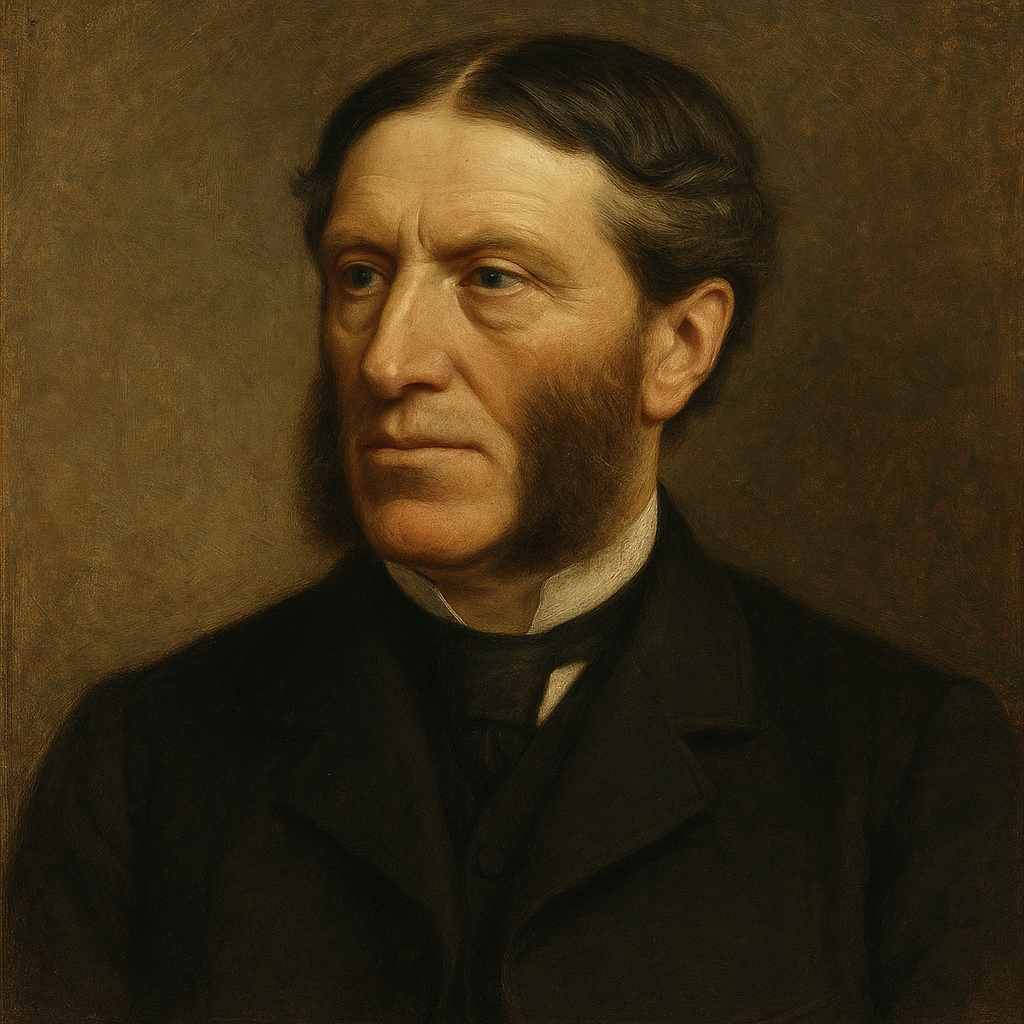8 Poems by Matthew Arnold
1822 - 1888
Matthew Arnold Biography
Matthew Arnold, born on December 24, 1822, in Laleham, Middlesex, England, was a prominent Victorian poet, cultural critic, and inspector of schools whose work left an indelible mark on English literature and intellectual discourse. The eldest son of Dr. Thomas Arnold, the renowned headmaster of Rugby School, and Mary Penrose Arnold, Matthew grew up in an environment that valued education, moral rectitude, and intellectual pursuits.
Arnold's early years were shaped by his father's influence and the rigorous classical education he received at Rugby School. This foundation in Greek and Latin literature would later inform his poetic style and critical thinking. In 1841, he entered Balliol College, Oxford, where he excelled academically and won the Newdigate Prize for poetry in 1843 with his poem "Cromwell." Despite his success, Arnold's time at Oxford was marked by a growing sense of uncertainty about his future and the changing world around him, themes that would become central to his later work.
After graduating from Oxford in 1844, Arnold briefly worked as a private secretary to Lord Lansdowne, which provided him with valuable insights into the world of politics and society. In 1851, he secured a position as an inspector of schools, a career he would maintain for over three decades. This role allowed him to travel extensively throughout England and the Continent, observing and reporting on the state of education. His experiences in this capacity deeply influenced his views on culture, society, and the importance of education in shaping the human spirit.
Arnold's poetic career began in earnest with the publication of "The Strayed Reveller and Other Poems" in 1849, published under the pseudonym "A." This collection, while not immediately successful, contained several poems that would later be recognized as masterpieces, including "The Forsaken Merman" and "Mycerinus." His subsequent volumes, "Empedocles on Etna, and Other Poems" (1852) and "Poems: A New Edition" (1853), further established his reputation as a poet of considerable talent and depth.
Arnold's poetry is characterized by its elegiac tone, philosophical contemplation, and preoccupation with the loss of faith and certainty in the modern world. His most famous poems, such as "Dover Beach," "The Scholar-Gipsy," and "Thyrsis," reflect his deep engagement with the intellectual and spiritual crises of the Victorian era. In "Dover Beach," for instance, Arnold poignantly captures the sense of melancholy and loss that accompanied the erosion of traditional religious belief in the face of scientific advancement and social change.
While Arnold's poetry secured his place in the literary canon, it was his work as a cultural critic that truly defined his legacy. Beginning with "On Translating Homer" (1861) and culminating in seminal works such as "Culture and Anarchy" (1869) and "Literature and Dogma" (1873), Arnold established himself as one of the foremost public intellectuals of his time. In these works, he grappled with the role of culture in an increasingly industrial and democratic society, arguing for the importance of what he termed "sweetness and light" – the cultivation of beauty and intelligence – in counteracting the materialism and philistinism he saw as threats to civilization.
Arnold's conception of culture as "the best that has been thought and said in the world" became a touchstone for literary and cultural criticism. His advocacy for a broad, humanistic education and his critique of narrow specialization continue to resonate in debates about educational policy and the purpose of liberal arts education. Moreover, his insistence on the importance of disinterested criticism and the pursuit of perfection in art and life influenced generations of writers and thinkers.
In his personal life, Arnold married Frances Lucy Wightman in 1851, with whom he had six children. Their relationship, though sometimes strained by Arnold's demanding career and intellectual pursuits, was a source of stability and comfort throughout his life. The loss of two of their sons in childhood deeply affected Arnold and is reflected in some of his most poignant poetry, such as "Thyrsis" and "Rugby Chapel."
As Arnold's reputation as a critic grew, his poetic output diminished. His last significant collection of new poetry, "New Poems," was published in 1867. In his later years, he focused increasingly on prose works, including literary criticism, religious commentary, and social criticism. He also undertook several lecture tours in the United States, where his ideas on culture and education were received with great interest.
Matthew Arnold died on April 15, 1888, while on a trip to Liverpool. His passing was mourned as the loss of one of the great voices of Victorian literature and thought. In the years since his death, Arnold's reputation has undergone various reassessments, but his influence on English literature and cultural criticism remains profound. His poetry continues to be studied and admired for its technical skill, emotional depth, and philosophical insight, while his prose works remain relevant to discussions of culture, education, and the role of literature in society.
Arnold's legacy is complex and multifaceted. As a poet, he bridged the Romantic and Victorian eras, combining the lyrical sensibility of the former with the intellectual rigor and doubt of the latter. As a critic, he championed a broad, humanistic conception of culture that challenged the narrowness and materialism he saw in his contemporary society. And as an educator and public intellectual, he tirelessly advocated for the transformative power of literature and the arts in shaping individual character and national culture.
Today, Matthew Arnold is remembered not only for his contributions to English literature but also for his role in shaping the intellectual landscape of the Victorian era and beyond. His works continue to be studied, debated, and reinterpreted, testament to the enduring relevance of his ideas and the timeless quality of his poetry. In an age of rapid technological change and social upheaval, Arnold's call for the cultivation of the inner life and the pursuit of cultural excellence remains as pertinent as ever, ensuring his place as a figure of lasting significance in the annals of English literature and thought.
This text was generated by AI and is for reference only. Learn more
Username Information
No username is open
Everything is free to use, but donations are always appreciated.
Quick Links
© 2024-2025 R.I.Chalmers (V2Melody).

All music on this site by R.I.Chalmers (V2Melody) is licensed under a Creative Commons Attribution-NonCommercial 4.0 International License.
Attribution Requirement:
When using this music, you must give appropriate credit by including the following statement (or equivalent) wherever the music is used or credited:
"Music by R.I.Chalmers (V2Melody) – https://v2melody.com"
Support My Work:
If you enjoy this music and would like to support future creations, your thanks are always welcome but never required.
Thanks!









